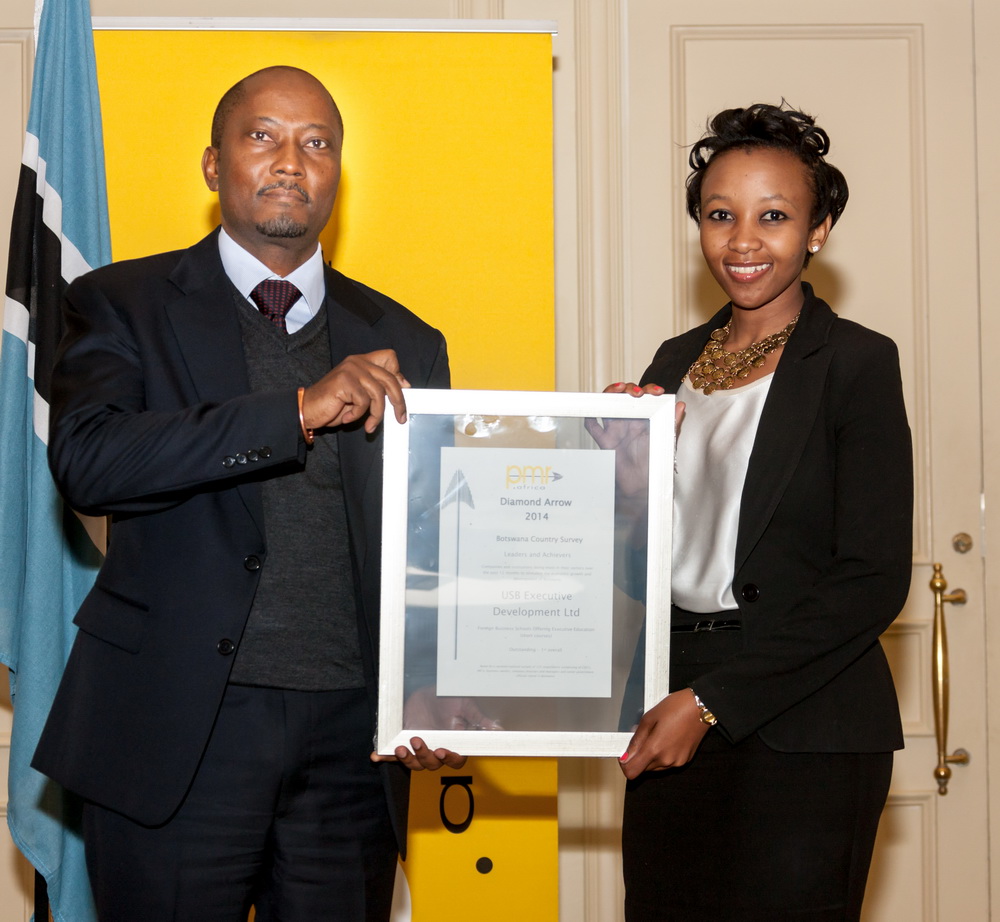
Kenneth Molosi - EOH Consulting (and International Advisory
Board member of USB-ED) and Refilwe Mpowe - EOH Consulting
USB Executive Development (USB-ED), the public executive development and training company of the University of Stellenbosch Business School (USB), was recently awarded a PMR.africa Diamond Arrow Award under the category of Foreign Business Schools offering Executive Education (short courses) in Botswana.
This is the first time USB-ED was included in the survey outside SA. The University of South Africa (UNISA) Graduate School of Business Leadership (SBL) followed with a Gold Award and Limkokwing University of Creative Technology with a Silver Award.
The award was accepted by Kenneth Molosi from EOH Consulting and International Advisory Board member of USB-ED.
“USB-ED was voted ahead of all other foreign business schools doing business in Botswana. This speaks volumes about the credibility of the brand and the general acceptance of USB-ED as the de facto standard in terms of short-term management and leadership programmes.
“The stage is indeed set for USB-ED to establish a presence in Botswana as a consequence of this major feat,” Molosi said.
This follows the PMR.africa Diamond Arrow Award in a national survey of academic institutions offering executive education in South Africa that was awarded to USB-ED in February this year.
USB-ED CEO, Frik Landman, commented: “Our vision for Africa and our role in it, keeps us motivated and constantly reaching higher. The PMR award in Botswana is therefore a further affirmation and motivates us to continue on our journey."
Read more at http://www.usb-ed.com/content/Pages/USB-ED-top-executive-education-provider-in-Botswana.aspx#ieIgubpZwR6xAkdz.99











.jpg)





